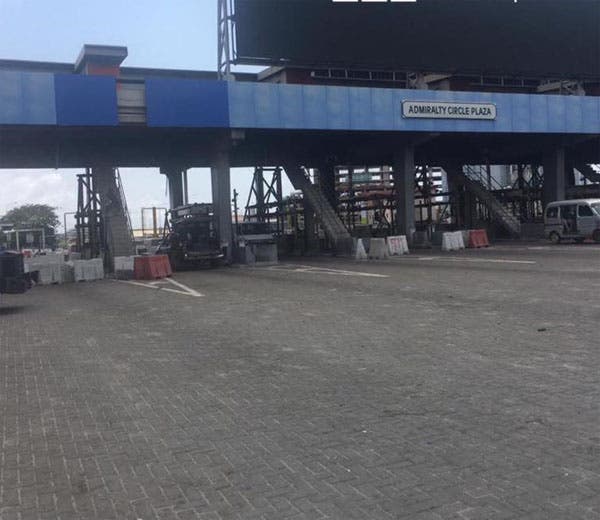
To all Lagos dwellers, especially the embattled citizens who live in the Lekki and Ajah axis, the toll plazas imposed on them by the All Progressives Congress, APC, administration in Lagos are tolerated with heavy grudges.
The Victoria Island-Lekki-Ajah-Epe corridor is the only major road out of Lagos that was constructed through the initiative of the Lagos State Government. All other corridors to Ikorodu, Ibadan, Seme/Agbara, and Abeokuta were constructed by the Federal Government.
All the federal roads are pavilioned with complex long bridges, flyovers, drainage channels, and causeways. They are invariably between six to 10 lanes each: much wider and longer than the Lekki-Epe Expressway pioneered by the LASG.
The question is: Why should the LASG insist on erecting toll plazas on the road leading to the “New Lagos”, thus exploiting the people and applying a chokehold on ease of movement along that corridor?
If the Federal Government led by Generals Yakubu Gowon, Olusegun Obasanjo and Ibrahim Babangida had erected toll plazas on Ikorodu Road, Apapa-Oworonshoki Expressway, Mile 2-Seme/Agbara, Lagos-Abeokuta and the second longest bridge in Africa – the Third Mainland Bridge – who will move in Lagos? Why would the Federal Government use the money it generated from our oil in the East and Niger Delta and build massive infrastructures for free in Lagos (the former Federal Capital) only for the LASG to toll its roads and bridges built with taxpayers’ money?
The people of Lagos have good reasons to nurse a burning malice towards the Lekki toll plazas. What is the rationale in handing over such an important new corridor to a private construction company, Lekki Concession Company, except that it is linked to a political godfather in the state?
When the Bola Ahmed Tinubu regime announced the concession arrangement in 2000, the LCC was supposed to construct a suitable highway to Epe and recover its money through tolling. Narrower shunpikes were also constructed for those who did not wish to pay at the plazas.
The Babatunde Fashola administration later initiated the construction of the Lekki Linkbridge. It is reported that the linkbridge generates about N10m daily, while the Admiralty Circle Toll Plaza alone which processes about 80,000 vehicles everyday generates some N16.6m daily.
Since the Lekki Tollgate operations were suspended on October 20, 2020, reports have it that about N7.8bn has been lost. But the Managing Director of the LCC, Mr. Yemi Omomuwasan, put the figure at N2.5bn, adding, however, that the suspension is threatening the jobs of 500 workers, while the company still owes N24bn and $50million to local and foreign lenders, respectively.
Victoria Island, Ikoyi, Lekki/Ajah residents had borne the grudge of coughing out the tolls and being made to waste valuable time waiting to pay at the plazas. There have been sporadic protests over their existence which invariably fizzled out. The events of October 20, 2020 changed the narrative around the Lekki Tollgate in particular.
A group of unarmed Nigerian youths involved in the historic #EndSARS protests chose the Lekki Tollgate as one of their venues, perhaps a fallout of the old grudge against the existence of the plaza. They chanted patriotic songs and conducted themselves in the most civil manner. Their protest was beamed live through major local and international news outlets. It was the LASG, in cahoots with the Federal Government that introduced chaos into the peaceful protest and gave hoodlums the opportunity to burn and loot government and private property.
It was the political machinery of the ruling party that brought hired thugs in BRT buses to confront the protesters. When that failed, the state and federal governments colluded to bring in the Army, which subsequently used live arms to quell the protest, thus leading to the injuries and death of yet-to-be-ascertained number of protesters. It was the violent action by the LASG and Federal Government that tripped off the rioters, looters and arsonists who raged for days without let or hindrance.
As part of efforts to placate the protesters, the Federal Government persuaded state governments to set up panels of inquiry. Though we all know that such panels are usually used to pour cold water on burning issues in order to sweep them under the carpet, the protesters agreed to participate in the various panels, especially the one set up in Lagos under the chairmanship of Justice Doris Okuwobi.
The order by the Panel of Inquiry that operations of the Tollgate should be opened for repairs while the Panel was yet to conclude its assignment was read as yielding to political pressure from the LASG, hence the move for another protest. The activist members of the Panel disowned the order, and for good reasons.
How can you order preparations towards the reopening of the toll plazas when the whole truth of what happened on October 20, 2020 has not been ascertained and justice served to victims of the military operation and police brutality who testified at the panel? If the plazas are reopened without justice to those victimised when will the justice come?
The truth is that the status of the Lekki Tollgate has changed forever. That Tollgate is no longer a money minting site for some Shylock politicians; it is now a monument to democracy, freedom and a better Nigeria. Any money made from that plaza from now on is blood money! It is now a site for the celebration of the unarmed young nationalists and martyrs felled by military bullets.
The LASG under Governor Babajide Sanwo-Olu should, after the Panel winds up, also wind up the Lekki Tollgate. There is no better way to “Defend Lagos” than by respecting their wish for the abolition of the Lekki Tollgate and the construction of a ten-lane expressway to Epe with the taxpayers’ money.